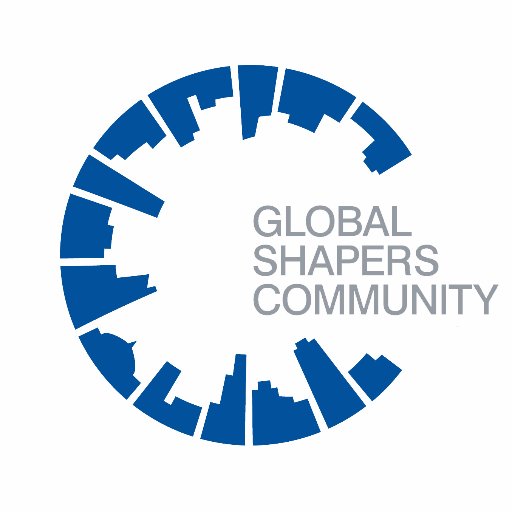Christopher Roberts – Data Scientist, Data for Humans LLC
Passionate about: Data, Parenthood, Fiber-Arts
SDGs: Zero Hunger
What brings members to Impact Hub? Interesting events, a cozy workspace, supportive resources, but mostly the amazing community of entrepreneurs and innovators making a difference in the world. Check out our monthly recap to meet our newest members and see events you may have missed.
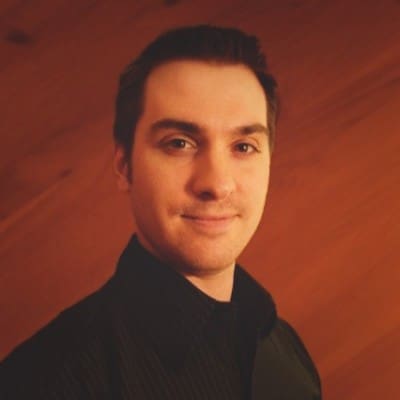
Christopher Roberts – Data Scientist, Data for Humans LLC
Passionate about: Data, Parenthood, Fiber-Arts
SDGs: Zero Hunger
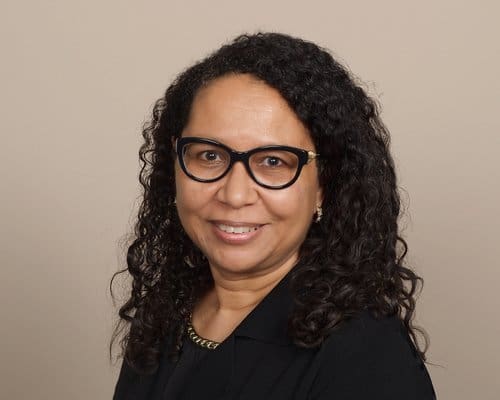
Mary Taris – Founder & CEO of Strive Publishing, Chameleon Shoppes Vendor
Passionate about: Centering Blalck voices to dispel stereotypes and to spread Black joy through books and the literary arts.
SDGs: Reduced Inequalities, Peace, Justice and Strong Institutions
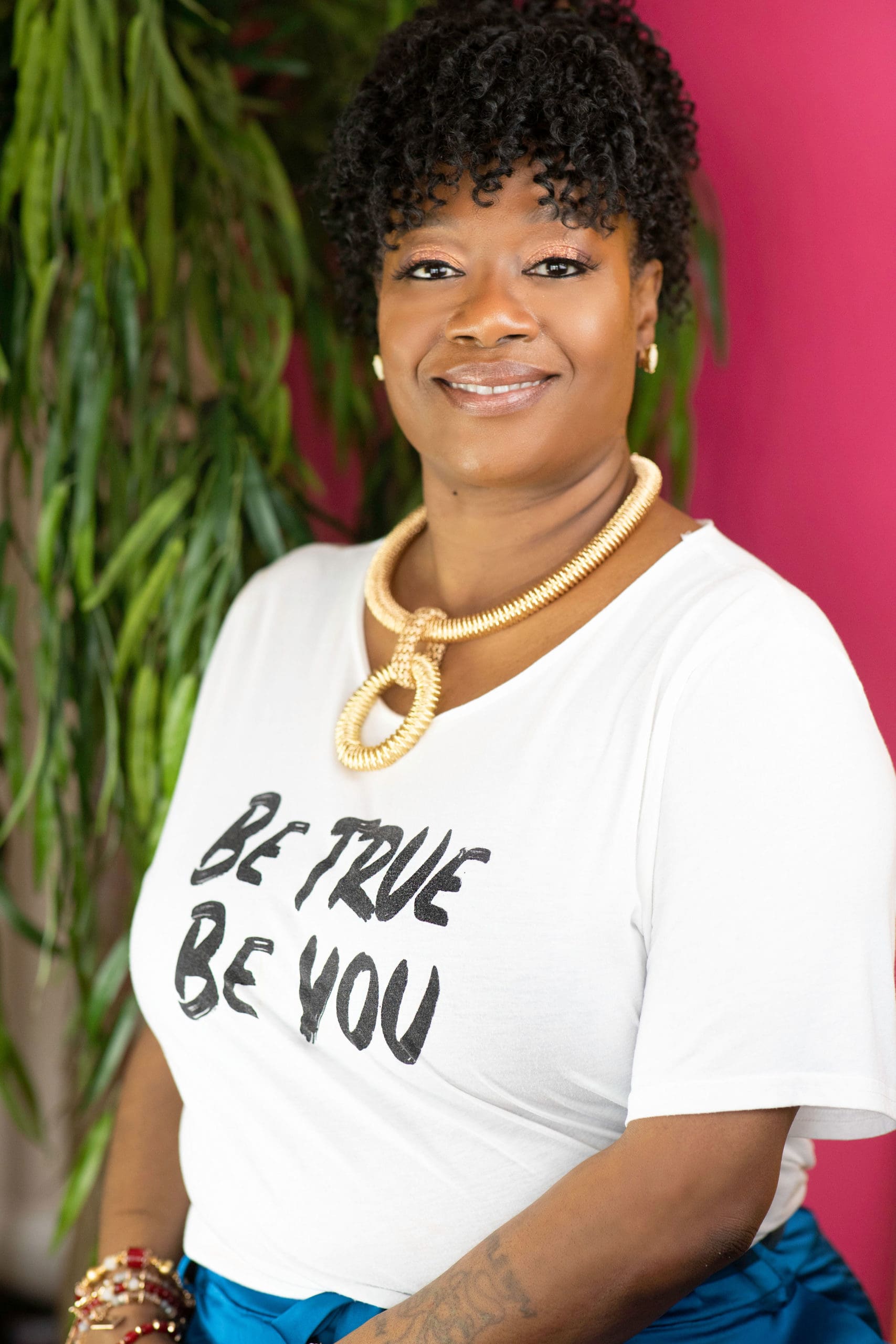
Shalawn Randall – Founder of B’YOUtique, Chameleon Shoppes Vendor
Passionate about: Spreading love, kindness and uplifting others.
SDGs: No Poverty, Zero Hunger, Good Health & Wellbeing, Reduced Inequalities, Peace, Justice & Strong Institutions
Impact Hub is busily preparing for our Summer Interns 4 Impact Program – Interns for Impact is a program for members of Impact Hub Minneapolis St. Paul that connects students from local schools with socially-oriented small businesses. Through this program, both the business and interns receive extra support and educational opportunities. This month we hosted a workshop on How to Work with Interns. Learn more about Interns 4 Impact here and fill out this interest form if you would like to get involved. Find resources from this webinar here.
The Difference Between B Corps & Public Benefit Corporations with MN B Local
Have you always wondered about the difference between B Corps and Public Benefit Corporations? This is one of the top questions we get at Impact Hub. This month, in partnership with B Local Minnesota, we hosted a great event that answered that very question! We were lucky to learn about B Corps and Public Benefit Corporations from Kimberly Lowe, CFO at Avisen Legal, and Steve Simon, MN Secretary of State.
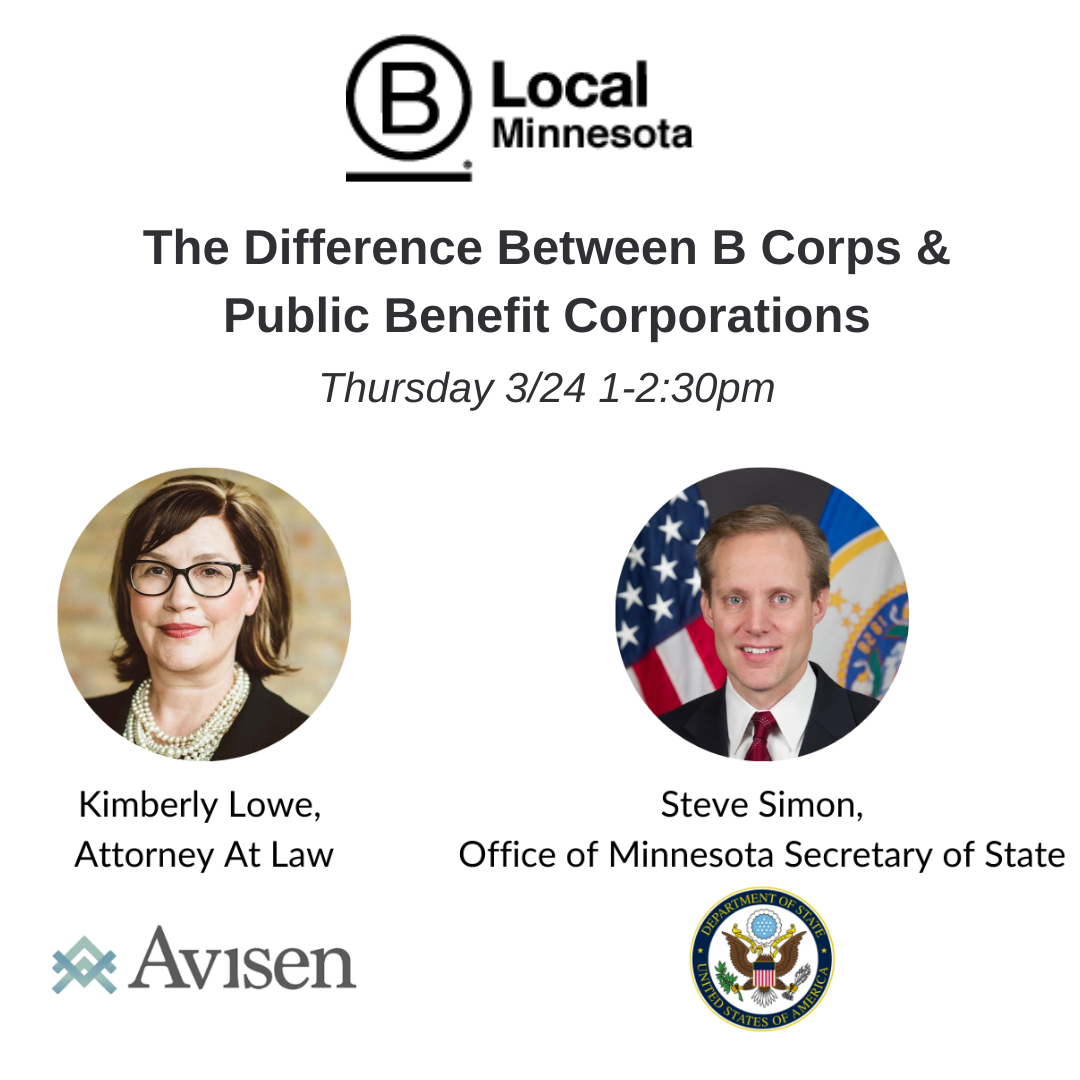
SDG of the Month: Gender Equality
SDG 5, Gender Equality, is working towards;
Achieving gender equality is crucial to realizing many of the SDGs – after all you cannot expect to achieve any global goal if half the world’s population is not fully empowered. And evidence shows that women’s participation makes peace agreements stronger, societies more resilient and economies more vigorous.
In honor of the SDG of the month and International Women’s Day, we would like to recognize the amazing women that surround Impact Hub MSP. Thank you to our staff and volunteers who make things happen at Impact Hub and beyond! (Not to mention our amazing board, advisors and members who aren’t listed). If you don’t already know these amazing women – you should!
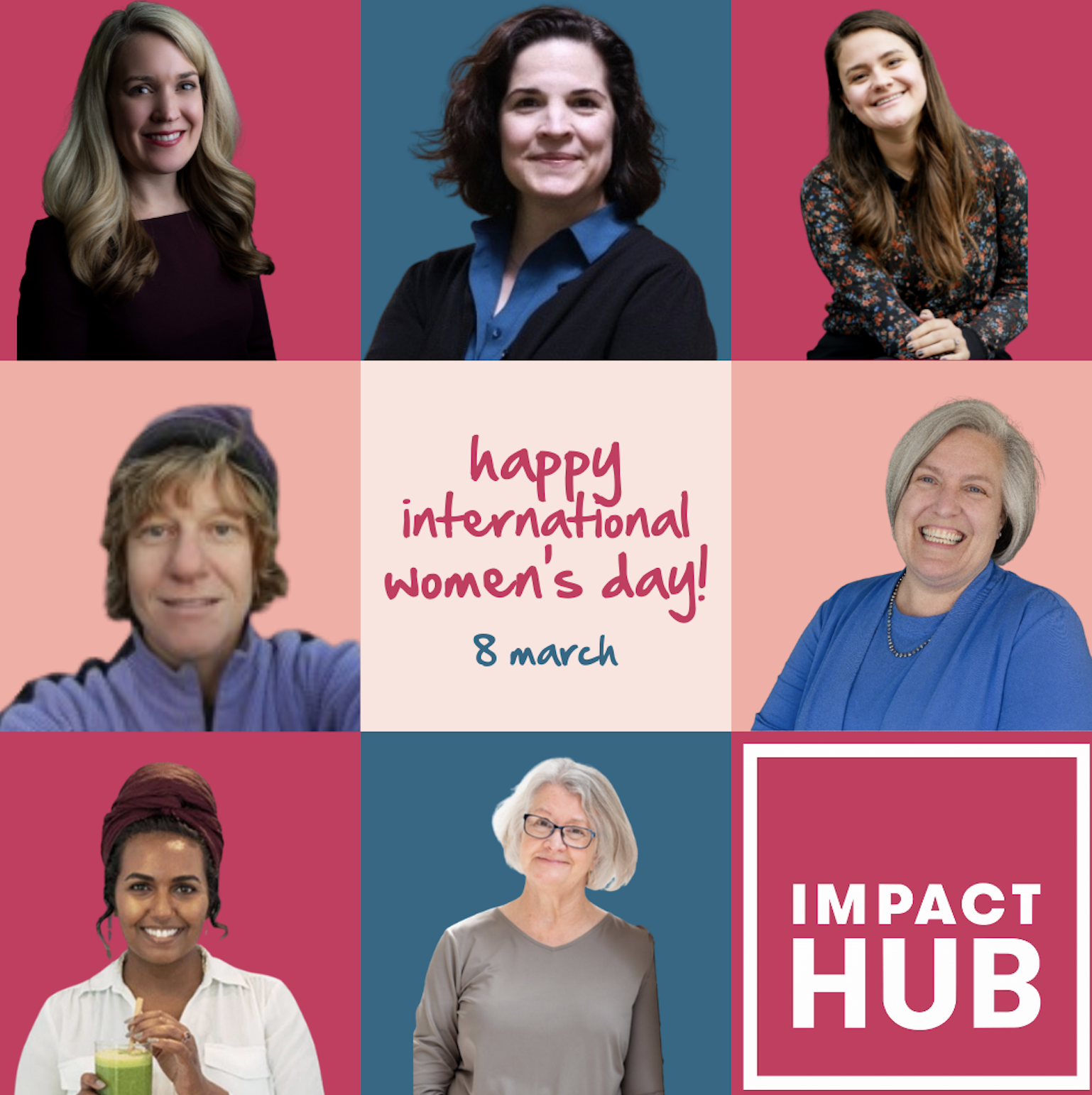
Thank you all!
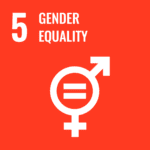
Thinking of joining a coworking space? Looking for a like-minded community? Look no further! Impact Hub is an inspiring place to work and connect. Get to know our newest members and see a recap of our February events in this month’s Community Impact Blog.
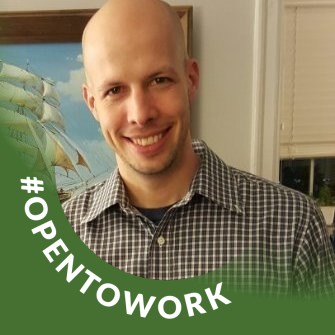
Joshua Hill – Full-stack engineer skilled in PHP frameworks and AWS architecture
Passionate about: Facilitation, creation, forward momentum, escape rooms, paintball and ultimate frisbee
SDGs: Quality Education, Gender Equality, Reduced Inequalities and Climate Action
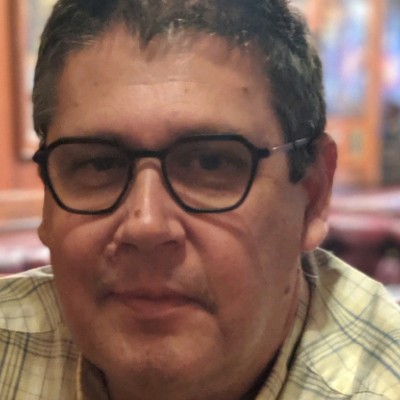
Norbert Kuchenmeister – Software consultant turned manager at Camunda.
Passionate about: Helping people solve problems with software.
SDGs: Gender Equality, Decent Work & Economic Growth, Industry, Innovation & Infrastructure

Design U – Design U is a student-led pro bono consulting club at the University of Minnesota that strives to design for impact.
Impact Hub MSP is excited to work with Design U students this semester on a collaborative project!
Design U Student Consultants:
Samuel Wang – Coming from an engineering discipline with a business background, I believe the success of any community relies heavily on personal growth, community economic growth, and innovation.
Passionate about: People development and the collaboration of individuals to forward society. I believe the future relies heavily on the intersection of human innovation and technology. Only when people in a community come together in partnership towards a common problem will the world become a better place for future generations.
SDGs: Good Health and Well-Being, Decent Work and Economic Growth, Partnership for the Goals.
Neha Shyam Aramkuni
Passionate about: Sea creatures. I’ve been researching them, especially sharks, since I was a kid. As an adult, I use them as inspiration for my designs. For my last sketching assignment, I designed many sea creature-inspired water hose nozzles. I’ve also been researching more about sustainable and ocean-friendly products and design options.
SDGs: Life Below Water, Zero Hunger, Clean Water and Sanitation
Sanketh Raju
Passionate about: Optimizing processes to better serve an individual’s health. Given my background in the health sector, I would love to see community growth through economic means and innovation to serve the well being of the populous.
SDGs: Good Health & Wellbeing, Decent Work and Economic Growth & Industry, Innovation and Infrastructure
Vaibhav Jain
Passionate about: The world of startups. I always try to keep up with the new products, services, and technologies that are coming into the market, read about innovative business models, and grab chances to interact with entrepreneurs.
SDGs: Good Health & Wellbeing, Industry, Innovation & Infrastructure and Partnerships for the Goals
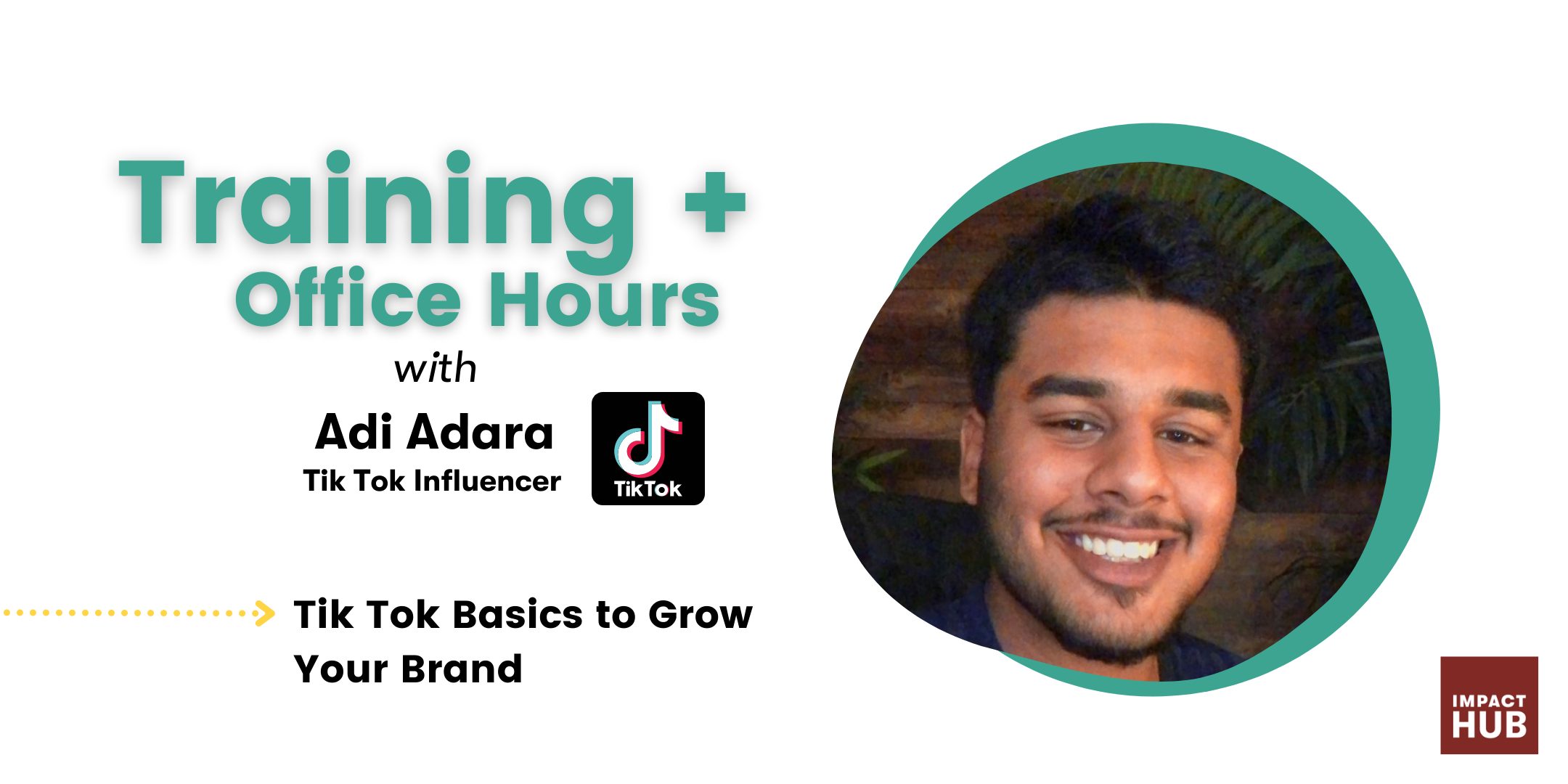
Impact Hub’s newest staff member, Adi Adara, is an avid advocate for TikTok marketing. Through the testing and application of various strategies to increase exposure Adi has gained 700,000 followers and over 20 million likes since June 2020!
In February, he shared some easy to implement basics for getting started on Tik Tok.
Check out this quick, fun and helpful guide on Tik Tok Basics to Grow Your Brand.
Healthy people are the foundation for healthy economies. SDG 3 – Good Health & Wellbeing is the largest goal in the 2030 Agenda covering topics such as; preventing & treating diseases, providing access to quality healthcare services and prolonging life expectancy.
Nearly two years into the COVID-19 pandemic, it is clear that good health and wellbeing is essential in order to create sustainable, equal and thriving societies. This year, the Black History Month Theme of Black Health and Wellness elevates the importance of SDG 3 by highlighting the disparities within the healthcare system. According to data from the CDC, COVID hospitalization rates among black people were 4.7 times the rate of white people.
However, Black Health & Wellness is also meant to celebrate the legacy of Black scholars, medical practitioners and innovators such as doulas, midwives and herbalists. Learn more here.
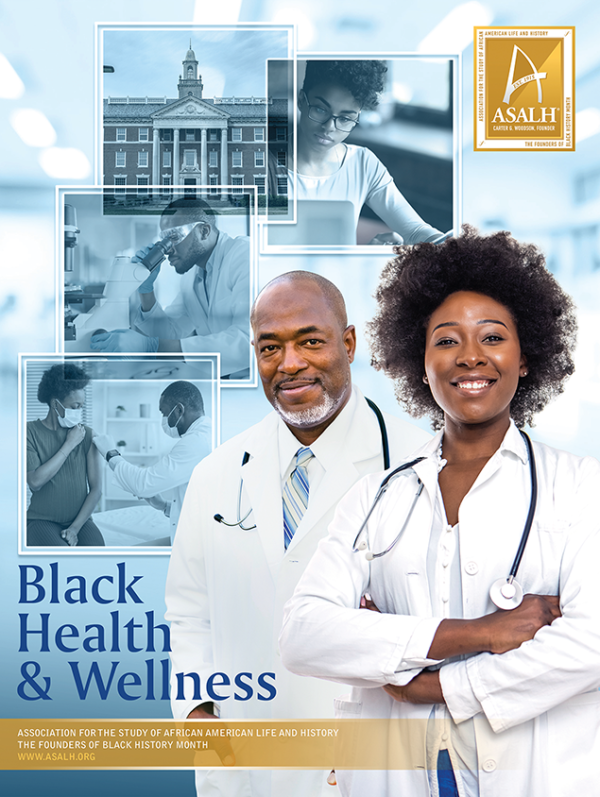
Innovations around health & wellness are always happening within the startup community.
Organizations in the Impact Hub community like Breathe 99, Backpack EMR, The Arc Minnesota and EOS International are working to ensure access to essential services, healthcare, clean drinking water and respiratory protection.
Coconut Whisk and Body Love Products are creating vegan, all-natural products that put health first.
However, even if your social business does not explicitly focus on health & wellbeing, we can still take steps to advance wellbeing in our work communities. Afterall, the average person will spend 90,000 hours at work – nearly one third of our adult lives!
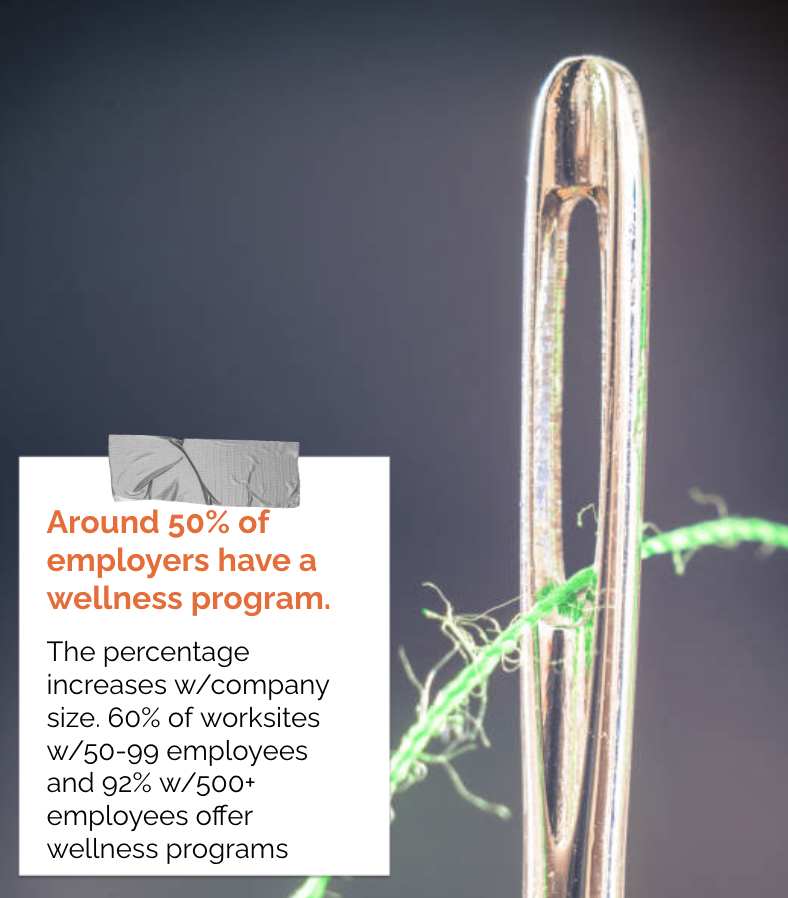
Learn more through this presentation by Safa Gamam, Global Wellness Program Manager & Consultant at Optum International
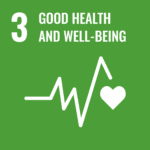
We are excited to welcome The Arc Minnesota, Memorialize the Movement and Mario Yimi Barron Aguilar to Impact Hub MSP. Thank you for joining our community!
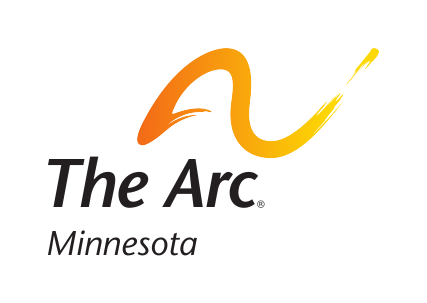
The Arc Minnesota People with intellectual and developmental disabilities and their families trust The Arc Minnesota for help in addressing issues that affect their lives. The Arc Minnesota engages people with public policy, as well as provides individual advocacy and programming to support people and promote systems change. Our work is also supported by Arc’s Value Village.
“We invite you to be a part of the change by attending our gala, volunteering, starting a career with us, and getting involved in public policy.”
SDGs: No Poverty, Good Health & Wellbeing, Quality Education, Gender Equity & Reduced Inequalities
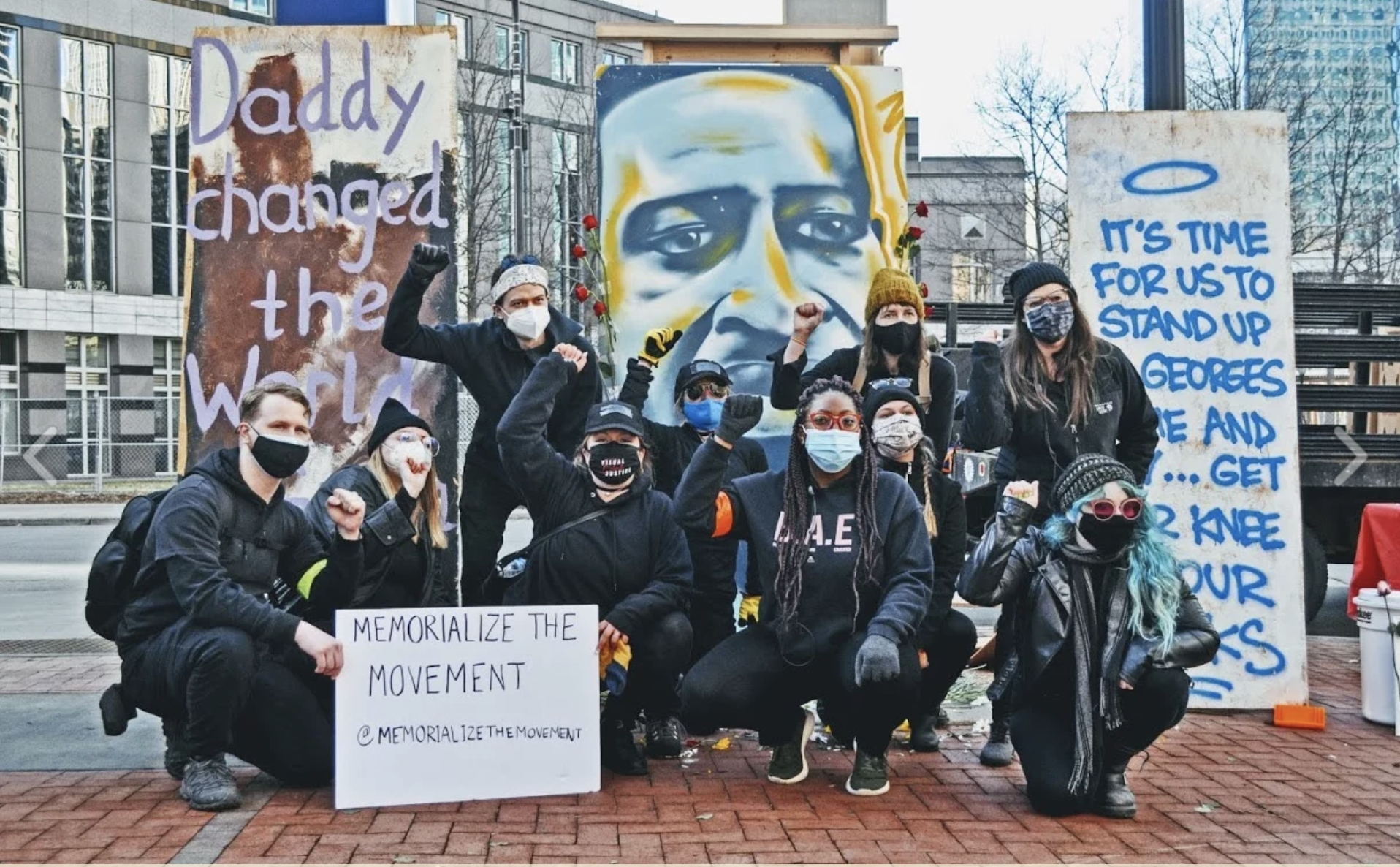
Memorialize the Movement is a grassroots, Black women led organization dedicated to the preservation of Black stories in Minneapolis. Their mission is to collect, preserve, and make accessible to the public the plywood art that emerged following the Minneapolis Uprising of 2020 that was a direct reaction to police brutality in our community.
SDGs: Good Health and Well-Being, Reduced Inequalities, and Peace, Justice, and Strong Institutions
To kick off the new year, Impact Hub MSP hosted a series of training sessions to help us reset for a fulfilling year. These workshops provided an opportunity to check in with our values, strengths and wellbeing.
Don’t worry if you missed it! Here are some recordings and resources to peruse on your own time. Impact Hub members and Hennepin County businesses can also set up 1-1 coaching with Jeff & Bri for free through our Experts Are In program.
30 Lessons From 30 Years with Jeff Kluge
Wellness Retreat with Bri Huntington
In 2022, global extreme poverty rose for the first time in two decades due to the COVID-19 Pandemic. It is estimated that 711 million people live in extreme poverty worldwide due to poor quality of work, inadequate living standards and health conditions, access to education, disempowerment and threat of violence and environmental hazards.
There is not just one cause of poverty and therefore a multi-dimensional approach is required to solve it. From raising awareness of social inclusion to providing universal access to education and reducing inequalities, organizations are thinking differently about how to end poverty.
One essential way to ‘think differently’ about these issues is to look to impoverished and immigrant communities who are already thinking creatively to address the inequalities imposed on them.
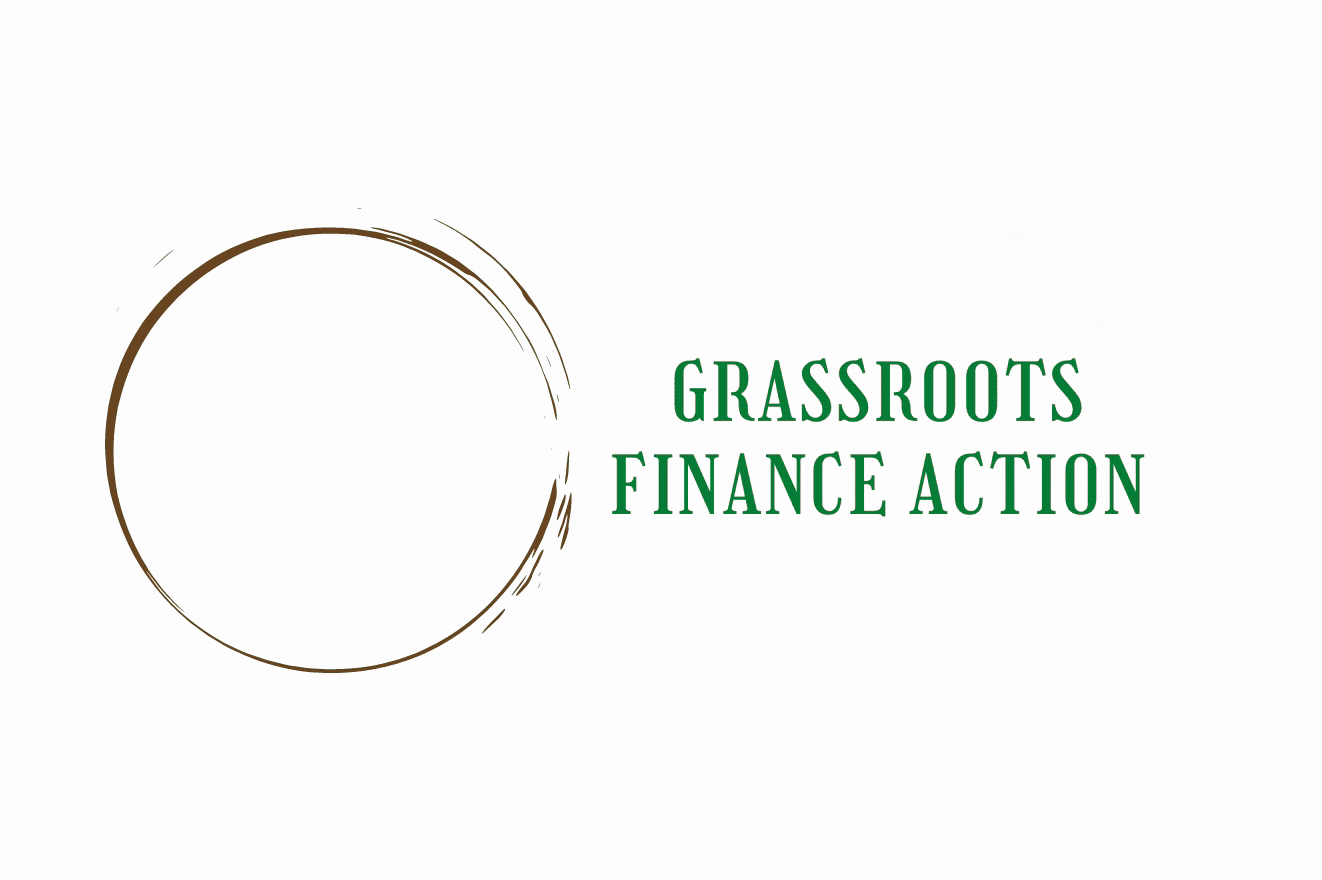
Grassroots Finance Action (GFA) is a Nonprofit dedicated to facilitating the global exchange of locally developed financial solutions. Each week, people from every continent who are forming culturally compatible savings groups among the poorest of the economically active poor meet via Zoom to develop savings groups methodologies.
“I hope we can continue to exchange ideas on how to integrate the local ‘informal’ economy into the ‘formal’ economy, said Rob Scarlett, Impact Hub member and Senior Advisor to GFA.
Want to learn more? Watch the recording of our Hub Club conversation on SDG 1.
Additional links & resources for further learning
CLUES & Lending Circles
Cultural Destinations: Building a Cultural Corridor
Economic Contributions of Immigrants in Minnesota
Other Impact Hub MSP members working towards SDG 1 – Zero Poverty
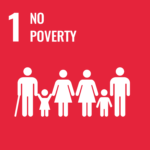
Today, we are spotlighting Sunrise Banks, a certified B Corporation and tremendous advocate for business as a force for good.
Sunrise Banks offers financially inclusive products that aim to better the lives of our clients in the Twin Cities Metro and beyond. The Sunrise family has been serving the urban core of Minneapolis and St. Paul since 1986, founded by current CEO David Reiling and his father, William. David Reiling is a social entrepreneur and innovator on the cutting edge of fintech and financial wellness. The focuses on positive community engagement and partners with like-minded companies to extend its mission nationally and around the world.
Sunrise is a certified B Corporation, a certified Community Development Financial Institution and member of the Global Alliance for Banking on Values. More information is available at www. sunrisebanks.com
Why did the bank become a Certified B Corporation?
Sunrise Banks has always tried to create a positive impact through its work – our mission is all about empowering financial wellness and helping others. Obtaining B Corp. certification seemed like a no-brainer given our emphasis on putting purpose over profit.
At the same time, the certification is great because it holds our feet to the fire. The B Lab certification – and recertification – process forces us to consistently reexamine how we’re running the business and what implications that might have. Certification makes us “walk the talk.”
How has becoming a B Corp benefitted Sunrise’s employees and customers?
The biggest advantage is that certification provides common ground for our values-minded employees and customers. This is something that clients want us to do – it shows them that we’re serious about being responsible financially and socially.
And frankly it’s a great recruiting tool for employees, too. More and more, workers look to their employers to not only be fair and responsible corporate citizens, but also entities that take a stand on social issues like environmental sustainability, which the B Lab certification process accounts for.
How is the bank using business as a force for good? What are some of your priorities as a B Corp?
Sunrise Banks’ mission is to be the most innovative bank empowering financial wellness. Our main goal is to create a more accessible and affordable banking experience for consumers. This takes many different forms, from partnering with fintechs to provide a responsible alternative to payday loans to partnering with Prepare and Prosper to offer FAIR, a program that provides bank accounts for low-income individuals.
We’re also strong advocates of affordable housing. In 2020, we created a Community Development Corporation that pooled funds from local organizations to preserve affordable housing in the Twin Cities. We also offer a mortgage program for prospective homebuyers who only have Individual Tax Identification Numbers as opposed to a Social Security Number.
Banks have an enormous amount of power – we’re the institutions that decide where money goes and how it’s spent. We feel we have a responsibility to use our influence in a way that deliberately lifts up individuals and neighborhoods that have been traditionally underserved.
Who are some of your role models in the business community? Who or what company can we all learn from?
There are so many Twin Cities organizations doing great things; it’s hard to choose just one. But most of the organizations we look up to most are those doing work centered around improving quality of life, especially for traditionally underrepresented populations. These include organizations like Habitat for Humanity, Avenues for Youth, Aeon, YouthLink and more.
We’re honored to get the opportunity to work with such great people.
What are some of the ways that the Minnesota B Local group can collectively deepen the positive impact in the state?
It’s so important to raise awareness. Too many companies think it’s impossible to “do well and do good.” Minnesota B Local and other regional groups are spreading the word about the B Corporation movement – and that in itself is a huge part of creating a positive impact in the state. The more companies know about how they can get involved, the more impact we can make.
This quarter’s Minnesota B Corps spotlight is on Seven Sundays. The Minneapolis-based B Corporation is creating a better breakfast from the ground up through a variety of sunflower cereals and muesli. One that works in harmony with nature and improves the health of the soil, our farmers, our consumers, and the planet. Hannah Barnstable, Co-Founder and CEO, explains how.
Why did you Become a B Corporation?
We became a B Corporation in 2019 right as our business was expanding outside of our initially concentrated Minnesota “home turf”. We decided that we needed a quick way to tell the world who we were, and what we stood for, as we would not be able to solely rely on our more in-depth founder story and mission as we grew. Along with distribution growth, we were growing internally, and it was also important that the things we stood for as founders be carried on into the future.
How is your company using business as a force for good?
We think of this topic holistically, and it truly touches all aspects of what we do. There are three areas where we shine: 1) Fair and transparent relationships with employees, suppliers, farmers and our customers; 2) Local, regenerative and sustainable sourcing of both ingredients and packaging; and 3) Giving back to the community through donations of product, money and time.
Who are some of your role models in the business community? Who or what company can we all learn from?
There are many companies we look up to big and small! The first that comes to mind is Patagonia. They are unapologetically committed to their mission of reducing climate change. They act in bold ways and are leading real change. We are also huge fans of Peace Coffee and have been since the first time we met them over 10 years ago. It feels like Peace Coffee is led by a real, beating heart. Despite all their successes, they have never lost their charming scrappiness and underlying mission-driven purpose.
What are your B Corp goals for this coming year and what B Corp accomplishments are you most proud of from the past year?
We are going to continue to lean into what we call “shortening the supply chain” (buying local and direct), regenerative agriculture and upcycled ingredients. We recently launched a new grain free Sunflower Cereal that is made with upcycled, Minnesota grown sunflower protein. It is the first cereal made with an upcycled ingredient, and it only contains real food – no natural or artificial flavors. It is packaged up in a post-consumer recycled film package. Our new cereal can be found in Whole Foods nationwide, select Target stores, Lunds & Byerly’s, Kowalski’s and online. It was a big 2020 project, and we are quite proud of this cereal.
Are you doing anything special during the holidays for staff or customers?
We are a small team of eight over here, so our get togethers are nice and intimate. This year, Andy (who wears many hats in our company and is also my brother) will be hosting a holiday dinner at his house for us all. We also have a fun give-back promotion for the month of December. Stay tuned!
Check out Seven Sundays on social media to learn more about the company, its products and the holiday promotion.
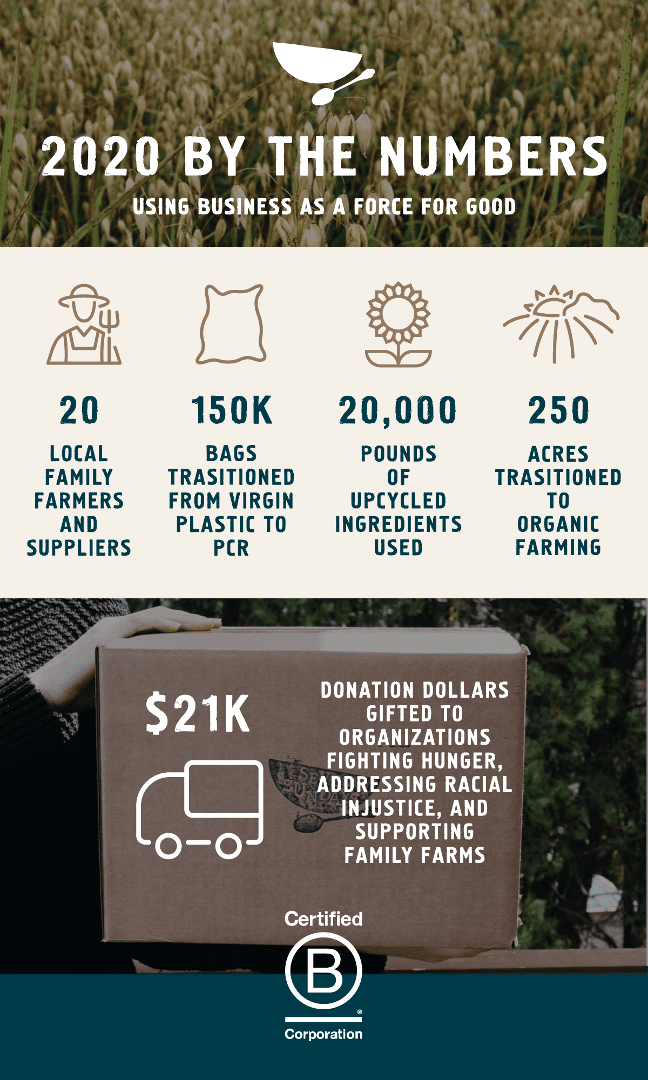
This quarter’s Minnesota B Corps spotlight is on Finley’s.
Founded in Minneapolis in March 2016, Finley’s is a premium pet brand that makes healthy, delicious dog treats that are free of wheat, corn, soy, fillers, and chemical preservatives. Dedicated to inclusion and support for people with disabilities, Finley’s donates 50% of net-profits to initiatives that provide skills training, paid work experiences, and a path to independence for individuals with disabilities around the country.
Finley’s products are all-natural with limited-ingredients to make treating with kindness deliciously easy for people and their pets. Crafted from the world’s best “superfoods” and allergen-friendly ingredients, their treats are loved among dogs of all ages with current products including crunchy oven baked biscuits and soft chew trainer bites.
Check them out on Facebook and Instagram for more information on their products and some cute pet photos.
Why was Finley’s interested in becoming a B Corporation?
When we started Finley’s, we made bold and critical commitments to serve people, pets, and the planet together. Using Finley’s as a platform to combat the over 80% unemployment rate people with disabilities experience, we wanted to always push ourselves to drive decisions based on how we could best serve our purpose. We realized quickly, to make progress towards our goals, we needed our customers to walk alongside us. The best way to accomplish that was to learn from other businesses in the B Corp Community paving the way for businesses to be a force for good.
What has been the most rewarding part of the decision?
Bringing focus and attention to our mission, alongside so many other great companies doing good in the community. Seeing the adoption and championing of what a B Corp is from team members, customers, retailers, and vendor partners. Now more than ever people deserve to trust the brands they buy from. Seeing our team members get to blend their passion for pets, with the empowering experience of representing a brand that they’re proud of is a win-win.
How is your company using business as a force for good / demonstrating the commitment to the B Corp values and mission?
We recognized early in our process how many employment gaps and opportunities there are in the consumer product journey from production to customers’ homes. With the lens to improve this experience, and fill critical roles with people of all abilities we were able to not only create opportunities through Finley’s, but also our retail and vendor partners that join our mission. Today, our team members are out in the community at stores across the country representing our mission, as well as expanding their skill sets and sharing their talents with retailers and vendors who support our mission.
Who are some of your role models in the business community? Who or what company can we all learn from?
A few years ago, we were introduced to Tom Mondragon, who shares a passion for the disability community and using business to drive consumer habits to tackle causes that better the world. We were immediately inspired and intrigued to align Finley’s mission to the B Corp community. His experience at Olly PBC and now Welly Health PBC and the missions they serve were great examples to Finley’s of how to approach doing good, while sustaining business practices that better the world. They are two great examples of understanding a need and executing in many business areas to build a culture among their teams, customers, and partners to be leaders for positive change.
What are your goals as a B Corp and what accomplishments are you most proud of since becoming a B Corp?
We’re most proud of the jobs created for people who are excited to work, and contribute their skills to the world. We tend to overlook some of the most important aspects of our daily lives, and having purpose and pride in where you work is something we never want to take for granted. Creating more of those opportunities for people around the country and bringing inclusion to our partners is something that we hope to build on this coming year. We’re also excited to continue our giving and focus on investing in marketing efforts that directly support people in need. Inclusion is more than a word at Finley’s, and we want to continue making it an action felt by everyone in the Finley’s and B-corp community.
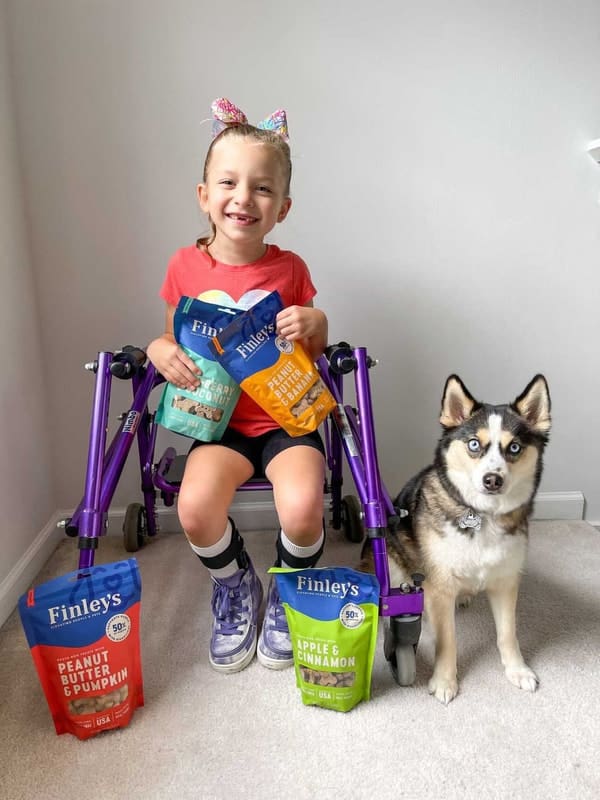
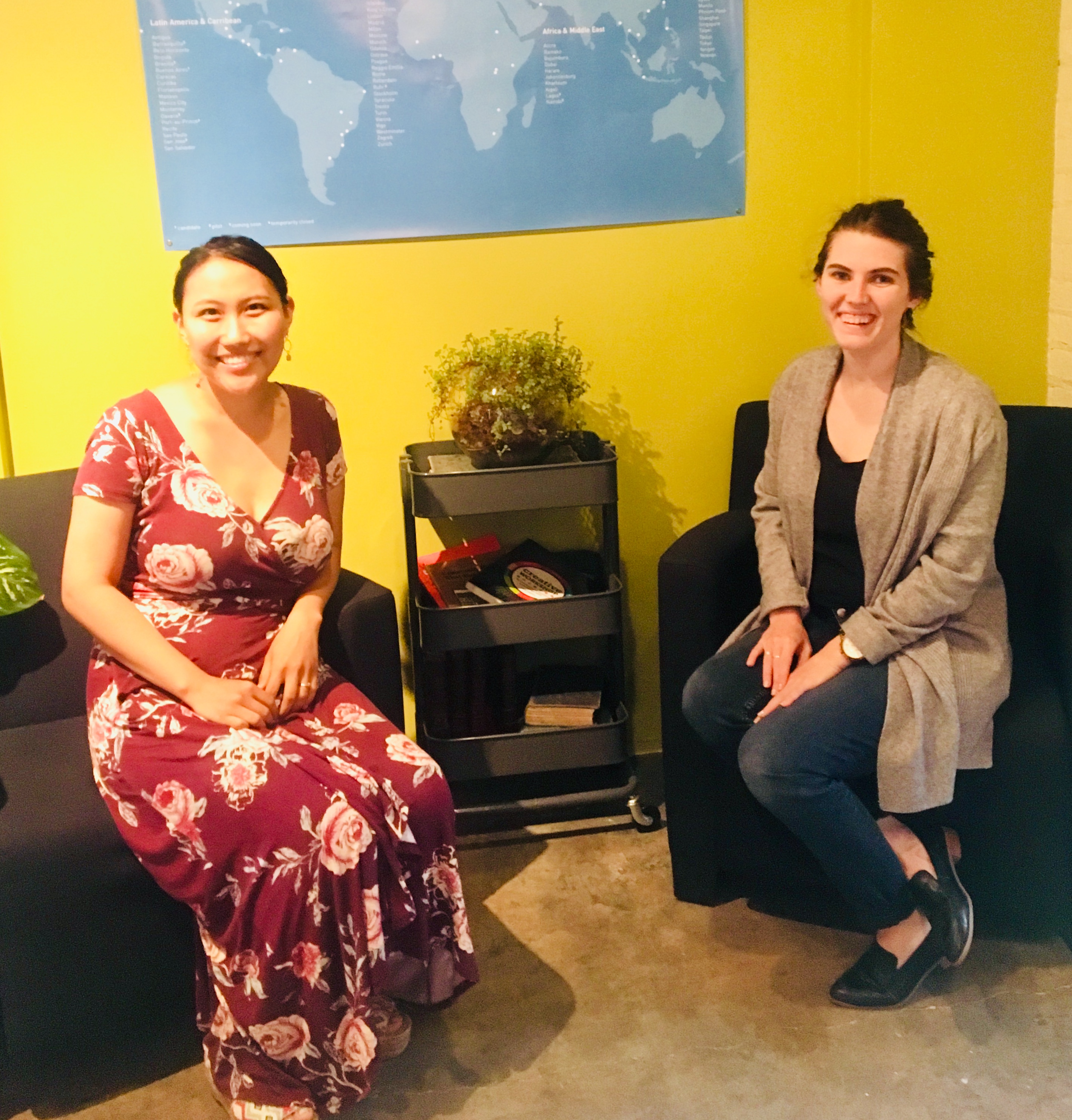
This month, Impact Hub is highlighting partnerships and the value that they bring to an organization. In celebration of that, we recently talked to Jessica Moes and Namuun Purevdorj, both members of the Global Shapers, another one of our partners. Note that during the interview, these Shapers at times refer to their community organization as a “hub,” as well as to Impact Hub as “the Hub.” It’s just one of the many things our organizations have in common! Read on to learn more.
Speaking about impact and social change, could you share an example of one of the projects you have been working on?
Namuun
Sure. So the main goal is all about self organizing youth and each community to voice solutions for the challenges in their local, regional, or even global, communities. Jessica mentioned how hubs cooperate to solve certain issues. For example, we have meetings in collaboration with other hubs, for example with the Milwaukee region. We have annual regional conferences where we come together in one of the city hubs to further collaborate and share our ideas and challenges. This year’s regional conference for North America and the Carribeans was in Atlanta. So there are definitely ways that we can come together on a local, regional, as well as a global level. There are several projects that our hub has done over the past five years, but the most recent project that was a highlight for me was the Shaping Fashion initiative by one of our members, Ashleyn.
Jessica
Ashleyn also happens to have another partnership with Impact Hub.
Namuun
Yes. So the Shaping Fashion initiative was all about waste and how that affects the environment. Her project was not just local or regional; it was actually global: many other members and other hubs joined together to have a whole week dedicated to sustainable fashion, where people came in and were able to look at ways that they could participate. I thought that was pretty cool.
Of course, there are other ways we engage, as well. For example, financial literacy is a big topic that I’ve seen in different hubs, whether through education, workshops, websites, or just getting youth plugged in. Specifically, when we’re talking about financial literacy or projects related to finance, it’s about being able to bring about equity in the community, so that everyone is able to have the opportunity to learn. In fact, equity is a very common theme for all of us: making sure that we are breaking the cycle of intergenerational inequity in our communities.
That’s an important theme. In thinking of that, and about Global Shapers in general, how would you say that its mission aligns with the mission of Impact Hub?
Jessica
I’ll tackle that. We’ve had a partnership with Impact Hub for at least three to four years, well before Namuun and I were even a part of this group. So I would say first and foremost, we’ve informed each other over time. The way that I’ve known Global Shapers has been deeply informed by Impact Hub’s mission. And I think vice versa. There’s this philosophy within Impact Hub, that innovation comes from collaboration, by pulling together people who might not normally intersect with one another on a day to day basis in their work, and putting them into a collaborative space together in order to bounce ideas off of one another. This helps make ideas become bigger and to stick more within communities in the ways that we really truly want. This also offers outside perspectives you might not normally think to consult, because it’s bringing in the voices that you might not normally have access to. And so in many ways, I think Global Shapers mirrors that by trying to host very similar discussions, even around ideas that certain members of our hub – but not necessarily everybody – are super interested in. But then you bring these ideas to the table and you say this is really important to me, I’m working on a project related to this idea, Person X might speak up and say, “Hey, this isn’t necessarily something I normally get involved with, but have you thought about this aspect, or this aspect, or how you’re going to interact with this community with regard to this particular topic?” So by being in a space with other people that might not normally interact, and being in on those conversations, is useful for skyrocketing those projects.
That’s a great point. As you said, Impact Hub similarly fosters rich interaction with organizations and people in a way that can be creative and helpful. Namuun, what’s your perspective?
Namuun
I would add that the resources that we have from Impact Hub – not just the space, but other resources like the Skills à la Carte sessions, for example, are very useful. And, again, diversity is important. So being plugged in, not just within the Shapers, but also with other people at Impact Hub is a bonus. With the age limit, some Impact Hub members may not be able to join our Shapers hub. However, we can still create relationships that help set us up with really great advisors and collaborators, and vice versa.
Jessica
When we talk about partnerships, I’d like to highlight that Impact Hub focuses on the Sustainable Development Goals, and as a hub that is part of a global network informed by the World Economic Forum, we’re also deeply guided by those Sustainable Development Goals. A specific project that we’re working on right now in alignment with Impact Hub is a series on the Sustainable Development Goals. Each month, we bring in local leaders working on a Sustainable Development Goal for a roundtable discussion about how that work is being done here in Minneapolis – St. Paul. We’ve now aligned those meeting rhythms with Impact Hub’s regular rhythm of approaching the Sustainable Development Goals. So that’s another cool project that we’re now working on in collaboration.
Namuun
One more important point in which we strengthen each other might be in our branding. We are very fortunate to have the Impact Hub name alongside our name on certain events, not only in our SDG series. Together, we amplify our reach.
Do you have any recommendations to other organizations when they’re looking at partnering together on projects or as institutions?
Namuun
The number one thing is making sure that we align on values. We have to ask ourselves why we are collaborating, why we are using the space, who we are catering to, and what the end goals are. Making sure that those questions are asked and answered up front, that they are aligned, is key.
Jessica
Recognizing that all the players at the table have equal skin in the game, and there should be a degree of equal benefit from the relationship, is also important. Each organization needs to make it a win-win situation, so that everybody is getting something out of the partnership and nobody feels exploited. Transparency throughout the whole process, and building the partnership with that hope and mindset that there’s a very intentional, desired outcomes for both parties, makes for a success. There also needs to always be a focus on true partnership.
